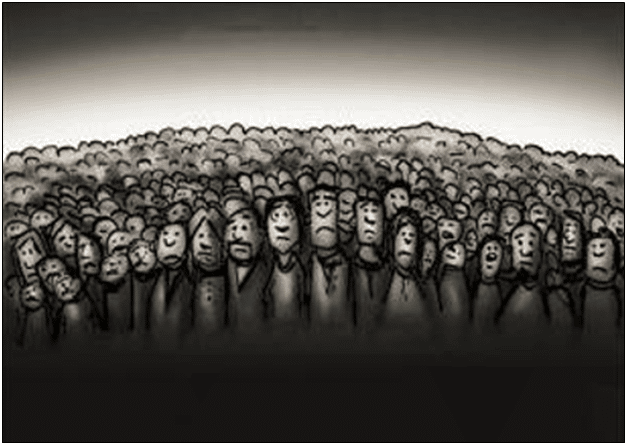Democratic strategists are finally panicking over the fact that President Joe Biden’s support among minorities is down double-digits compared to 2020. However, Democratic operatives are blaming an “information gap” for Biden’s struggles among working-class Blacks whom they claim are simply unaware of Biden’s slate of accomplishments.
In an interview with Politico recently, political operatives placed blame on an “information gap” among lower-educated Blacks for Biden’s sinking polling numbers, arguing that working class Blacks are simply uninformed.
Adrianne Shropshire, the executive director of BlackPAC, told Politico, “When you tell people ‘Here’s what the Biden administration has done,’ particularly related to issues the Black communities care about, people are really surprised.”
While there may be something to working-class Blacks being less politically invested or tuned into MSNBC, there is ample evidence that minorities across the board are retracting their support from Biden. That retraction is strongest among working-class minorities and young people.
This spring four polls covered by the Washington Post showed former President Trump carving out as much as 20 percent of the Black vote in November, after earning just twelve percent in 2020. CNN also warned that Biden’s reelection prospects could hinge heavily on his ability to court Black voters in battleground states. And the latest New York Times polling has Biden earning a full 23 percent of the Black vote, an eleven-point gain since 2020.
However, to the credit of leftwing strategists, there is a strong class divide with working class Blacks forming the bulk of the revolt against Biden, while educated minorities are more likely to remain Biden loyalists. Two weeks ago we pointed out that Biden loyalists are older, whiter, and more abortion-driven, while those deserting him are younger, more diverse, and more economically driven.
While it is debatable whether more awareness of Biden’s activities among working-class Blacks would increase his support, there is a sizeable rift between how the non-college educated crowd and those with a degree view the Biden White House.
The latest New York Times Siena poll shows that a full 23 percent of Blacks are likely to choose Trump over Biden in a head to-head matchup, up from 12 percent in 2020. On top of that, the Times poll shows a significant gap by education among minority voters.
Non-college minority voters are significantly less likely to support Biden than college-educated minorities, with non-college minorities supporting Biden by just nine percentage points, 47 percent to 38 percent, while college-educated minorities support Biden by over 30 points, 61 percent to 27 percent.
In Georgia, where Black voters make up nearly a third of the eligible electorate, this education-gap among minorities is even larger.
The Times polling shows a large gap between how non-college and college educated minorities plan to vote in Georgia. College-educated minorities plan to support Biden by 48-points, 68 percent to 20 percent, while non-college minorities plan to support Biden by just 18-points, 51 percent to 33 percent.
Georgia minority voters also rank Biden’s performance more poorly, and are more economically driven, according to the data.
There is a wide gap between which presidential contender – Biden or Trump – college-educated and non-college educated minorities feel would handle the economy best. College-educated minorities choose Biden over Trump by a 40-point margin while non-college minorities pick Biden over Trump by just 16 points.
There is a twelve-point gap between how college-educated and non-college minorities view the changes Biden would make if he were reelected, with 45 percent of college-educated minorities saying these changes would be “mostly good” compared to just 33 percent of non-college minorities.
Non-college minorities are also more likely to identify as conservative – 29 percent according to the Times poll – than college-educated minorities are – 18 percent.
A recent report from the NAACP on how inflation is impacting Black families appears to validate why working-class Blacks may not be buying the rosy economic picture the White House is attempting to paint.
The NAACP report found that a full 58 percent of Black adults do not have enough emergency savings to cover a month of their expenses due to inflation and nearly a third report having serious problems affording food. The report noted that for 2023 the cost of both food and shelter rose substantially, making it difficult for working-class families to afford basic necessities.
While working-class Americans skipping MSNBC newscasts highlighting Biden’s activities may be partially responsible for blue-collar Blacks withdrawing their support, that is not the full picture. Working-class Blacks have legitimate reason to reconsider where to place their allegiance in November.
Manzanita Miller is the senior political analyst at Americans for Limited Government Foundation.







